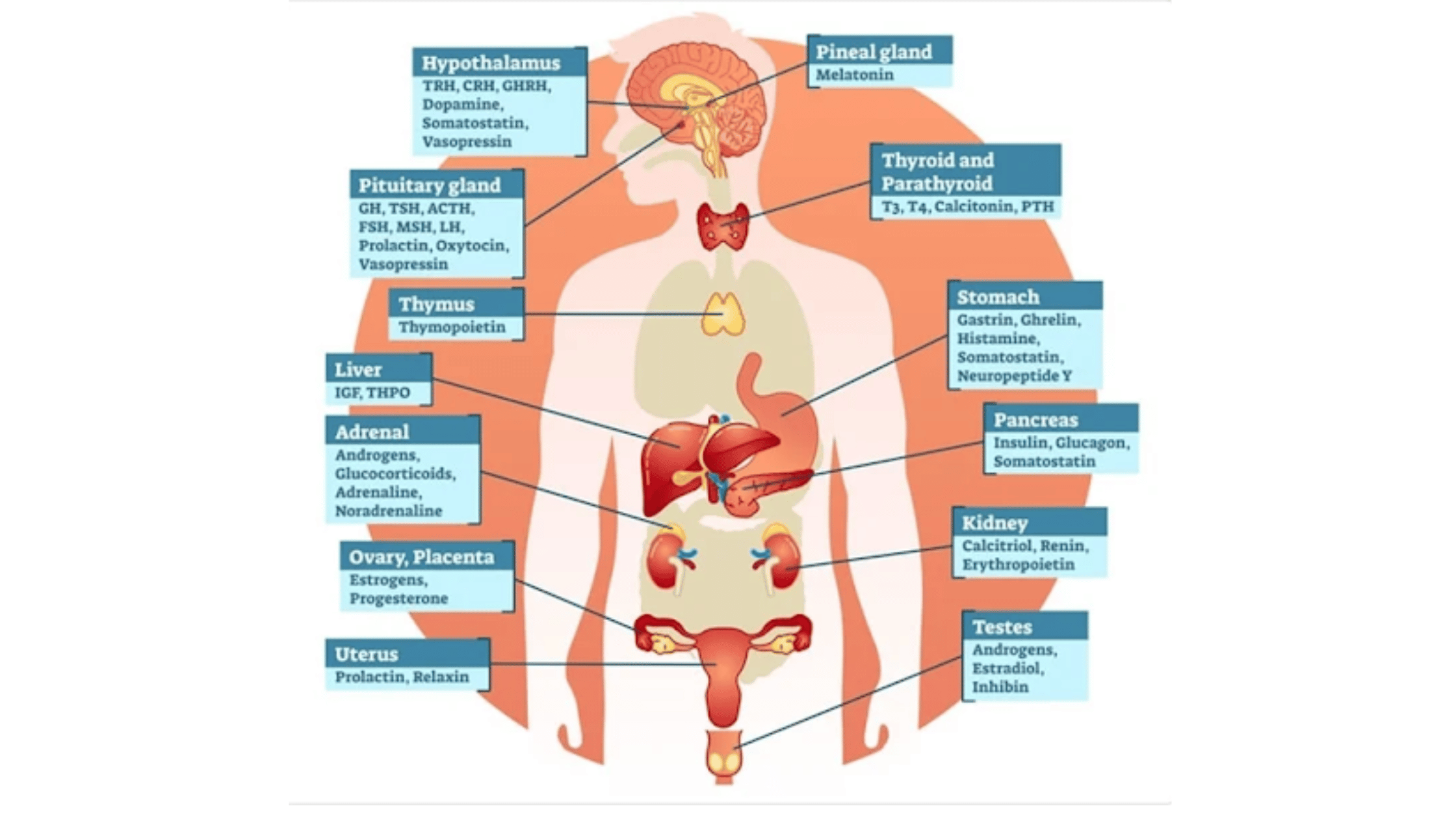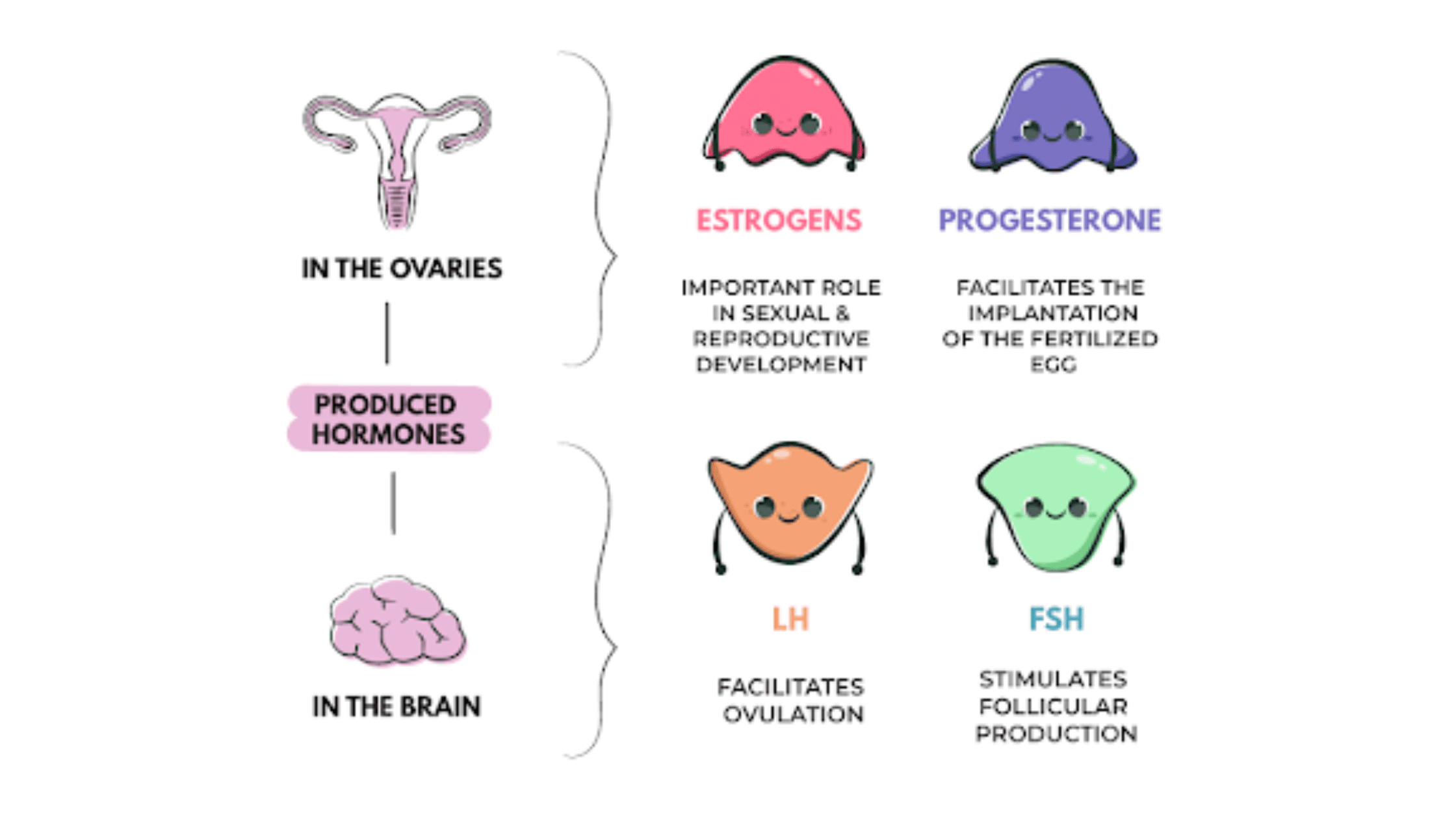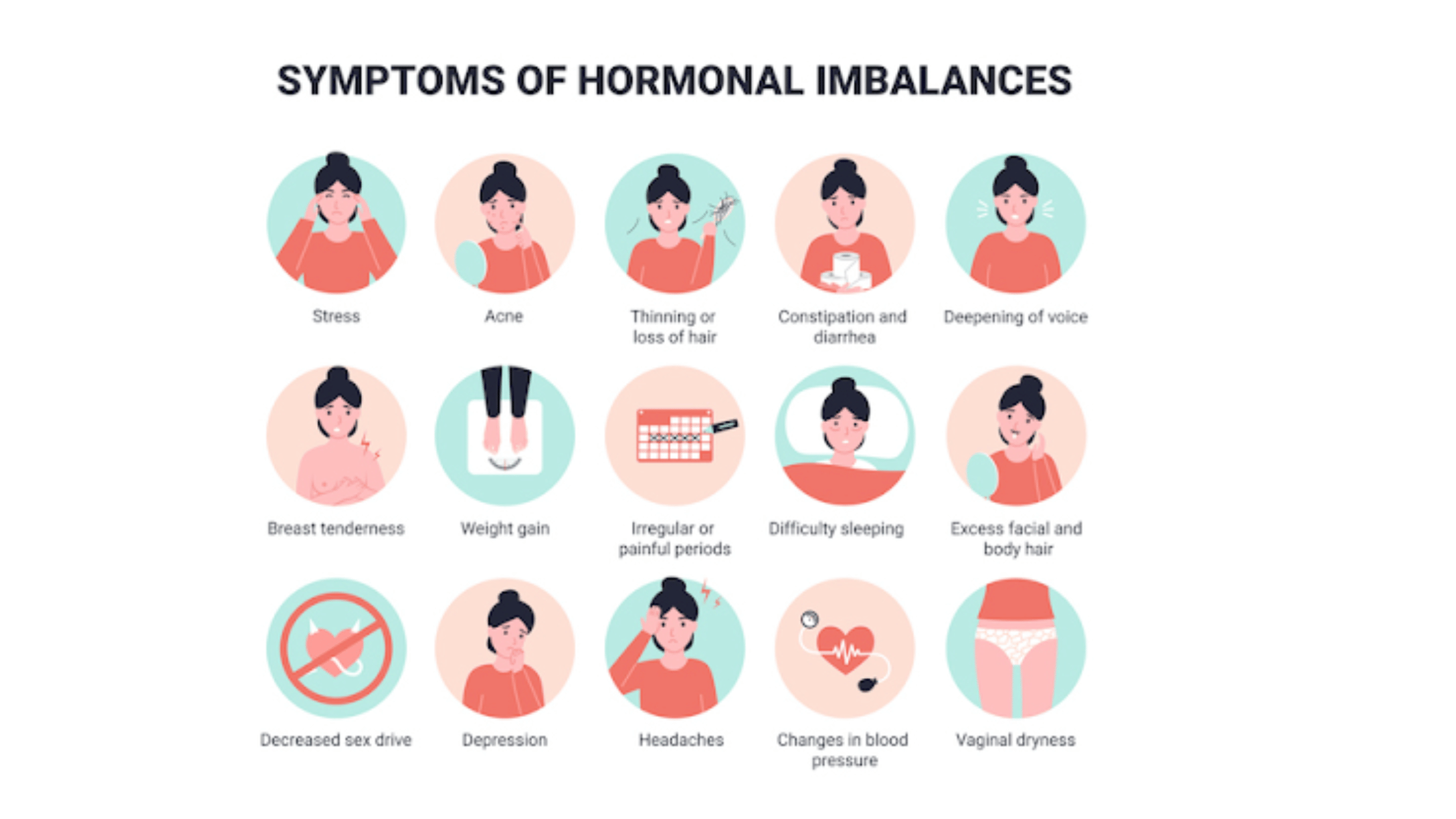
Hormones are like the hidden conductors of your body’s symphony, orchestrating everything from your mood to your menstrual cycle.
In this article, we’ll talk about hormones and how they impact women’s health – from understanding the basics of hormones to their roles in pregnancy, menopause, and beyond.
Discover the effects of hormonal imbalances, common disorders, and lifestyle factors that influence them. Plus, we’ll share practical strategies for maintaining hormonal balance, ensuring your body and mind stay in harmony.
Hormones: The Basics
Hormones are your body’s chemical messengers. They travel in your bloodstream to tissues or organs, influencing many of your body’s functions.
From growth and development, mood, sexual function, and reproduction to even how your body uses and stores energy, hormones have a hand in it. They are crucial for your well-being.
You might be aware of estrogen and progesterone, the key female hormones. But remember, your body’s a complex system. It also uses insulin, cortisol, and thyroid hormones, among others.
Understanding hormones isn’t just about knowing their names. It’s about realizing their impact on your body and health, and how to keep them in balance.

The Role of Hormones in Women’s Health
Hormones play essential roles in every aspect of women’s health, from menstrual cycles and pregnancy to menopause and overall well-being. Hormones are the body’s hidden managers, regulating everything behind the scenes.
Let’s delve into this further:
- Menstrual Cycles: Hormones like estrogen and progesterone regulate your monthly cycle. Any imbalance can lead to irregular periods or painful cramps.
- Pregnancy: Hormones kick into overdrive, ensuring the baby’s growth and preparing your body for childbirth. HCG, the hormone detected in pregnancy tests, is a prime example.
- Menopause: As your reproductive years end, hormone levels drop dramatically, causing symptoms like hot flashes and mood swings.

The Hormonal Cycle Explained
Let’s take a closer look at the hormonal cycle, a complex, finely-tuned machine that guides your body through monthly changes.
It starts with menstruation, when estrogen and progesterone levels drop, and your body sheds the uterine lining.
Next, the follicular phase begins, and your body starts producing more estrogen to prepare for ovulation.
In the middle of your cycle, ovulation occurs. This is when one of your ovaries releases an egg.
If the egg isn’t fertilized, you will enter the luteal phase. Here, progesterone rises to prepare your body for pregnancy. If you’re not pregnant, hormone levels drop and you start menstruation again.
To learn more menstrual cycle, visit cyclicalschool.com.
The Effects of Hormonal Imbalance
When your body’s delicate balance of hormones is thrown off, you may experience a range of symptoms that can impact your overall well-being.
Physical Changes
You might notice weight gain, acne breakouts, or hair loss. These can be particularly distressing as they’re visible signs of internal turmoil.
Mood Swings
You’re not just ‘being emotional’. Hormonal imbalances can cause unexplained mood swings, irritability, or feelings of sadness.
Fatigue
You’re not lazy. Your lack of energy could be due to a hormonal imbalance.

Common Hormonal Disorders in Women
Several hormonal disorders can throw your body out of balance, but understanding the most common ones can help you stay ahead of any potential problems.
Polycystic Ovary Syndrome (PCOS) is a frequent issue for women, causing irregular periods, weight gain, and even fertility issues.
Another common disorder is thyroid problems, which can lead to fatigue, weight changes, and mood swings.
Menopause, while a natural phase of life, can also cause hormonal imbalances resulting in hot flashes, night sweats, and mood changes.
Lastly, endometriosis is a painful disorder where tissue grows outside your uterus.
It’s important to recognize these signs and consult with your doctor if you’re experiencing any of them. Maintaining your hormonal health is key to your overall well-being.
Lifestyle Factors Influencing Hormones
Daily habits directly affect your body’s hormonal balance. Here are three key factors:
- Diet: What you eat matters. A balanced diet rich in fruits, vegetables, lean proteins, and whole grains can support hormonal health. Processed foods and high sugar intake can disrupt it.
- Exercise: Regular physical activity helps regulate hormone levels. It can lower stress hormones like cortisol and increase feel-good hormones like endorphins.
- Sleep: Skimping on sleep wreaks havoc on hormones. Poor sleep may lead to imbalances in hormones regulating hunger, stress, and mood.
Hormones and Mental Well-being
Fluctuations in hormones like estrogen and progesterone can significantly affect your mood, energy levels, and overall mental health.
You may experience mood swings, anxiety, or depression during certain times of your menstrual cycle when hormone levels fluctuate.
Similarly, changes in these hormones during menopause can contribute to mood disorders and cognitive issues.
Don’t worry, you’re not alone, and there are many ways to manage these changes.
Strategies for Maintaining Hormonal Balance
Maintaining hormonal balance isn’t as complicated as it may seem, and there are practical strategies you can adopt to keep your hormones in harmony.
Healthy Diet
Your body needs certain nutrients to produce hormones. Include protein-rich foods, fruits, vegetables, and healthy fats in your meals.
Regular Exercise
Physical activity stimulates hormone production and helps maintain their balance. Choose activities you enjoy, like walking, yoga, or cycling.
Stress Management
Stress can wreak havoc on your hormones. Implement stress-reducing activities such as meditation, deep-breathing exercises, and getting enough sleep.
Conclusion
Your hormones play a crucial role in your overall health, affecting everything from your mood to your menstrual cycle.
Whether it’s hormonal imbalances, disorders, or lifestyle factors, being aware of these influences is key.
Remember that your mental well-being is also intertwined with your hormonal health. Ensuring hormonal balance isn’t always easy, but with the right strategies, it’s certainly achievable.
So, take the reins of your health today – your body, mind, and hormones will thank you.
FAQs
How do hormones affect women’s behavior?
Hormones can influence women’s behavior by regulating mood, emotions, and stress responses. For example, estrogen and progesterone can impact mood and anxiety levels.
How do hormonal imbalances affect women’s mental health?
Hormonal imbalances can affect women’s mental health by leading to symptoms like mood swings, depression, anxiety, and irritability. Conditions like premenstrual syndrome (PMS) and menopause can exacerbate these imbalances.
Which hormone is responsible for emotions in females?
Various hormones play a role in regulating emotions in females, but estrogen is often associated with mood regulation. However, it’s important to note that emotions are complex and influenced by multiple hormones and factors.
What does low estrogen feel like?
Low estrogen can cause symptoms like hot flashes, night sweats, mood swings, vaginal dryness, and reduced libido. It can also contribute to feelings of fatigue and irritability in some women.